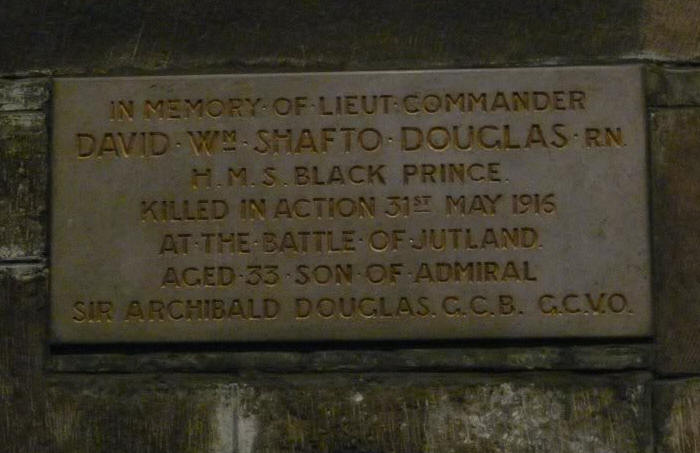A collection of historical and genalogical records
A strong navy was necessary to protect against invasion and Britain was dependent on imports of food and raw materials - all of which needed protection on the high seas. A large navy was also needed to protect the colonies and supplies being sent to the army in France.
The British Grand Fleet hoped to meet and destroy the German High Seas Fleet in a pitched battle, but both sides were reluctant to commit themselves. The Germans knew that they could not take on the much larger British Grand Fleet, whilst the British knew they had little to gain from a victory and everything to lose by a defeat, which would cause Britain to lose the war. First Sea Lord Winston Churchill said of Admiral Jellicoe that he was the only commander on either side who was capable of losing the war in a single afternoon.
The Germans planned to avoid an all-out battle until they had sunk enough British warships to make the numbers more even. In 1916, the German plan was to lure parts of the British Grand Fleet out into the North Sea by swift surface raids on East coast towns such as Scarborough and Sunderland. Meanwhile, German submarines were stationed several miles outside the main British naval bases of Rosyth and Scapa Flow for the purpose of sinking British battleships with torpedoes as they left port to deal with the surface raids. However this plan proved ineffective as the German U-boats failed to sink a single British warship.
Towards the end of May 1916, Admiral Scheer, Commander of the German High Seas Fleet, decided on a more risky decoy operation to lure British battleships out of port by leading the whole of the German High Seas Fleet out into the North Sea and sending his battlecruisers under Admiral Hipper ahead as a decoy to attack merchant shipping in the sea passage between Denmark and Norway.
Scheer’s intention was not to fight a pitched battle but to lure Admiral Beatty’s battlecruisers out of the Forth to attack Hipper and then fall on Beatty with the whole might of the German High Seas Fleet. Unknown to Scheer however, the British were able to decode German radio messages. Scheer’s messages to Hipper were intercepted and passed to Admiral Jellicoe, who immediately ordered the British Grand Fleet to sea under cover of darkness to avoid the waiting German submarines. By midnight on 30 May 1916, Jellicoe and Beatty were at sea - five hours before Scheer and the German High Seas Fleet had left their port at Wilhelmshaven!
Add a Comment
-
Comment by William Douglas on May 31, 2016 at 19:16
-

A plaque commemorating Lieut-Commander David William Shafto Douglas, Royal Navy, son of Admiral Sir Archibald Douglas, is in St Giles Cathedral, Edinburgh
© 2026 Created by William Douglas.
Powered by
![]()
You need to be a member of The Douglas Archives to add comments!
Join The Douglas Archives